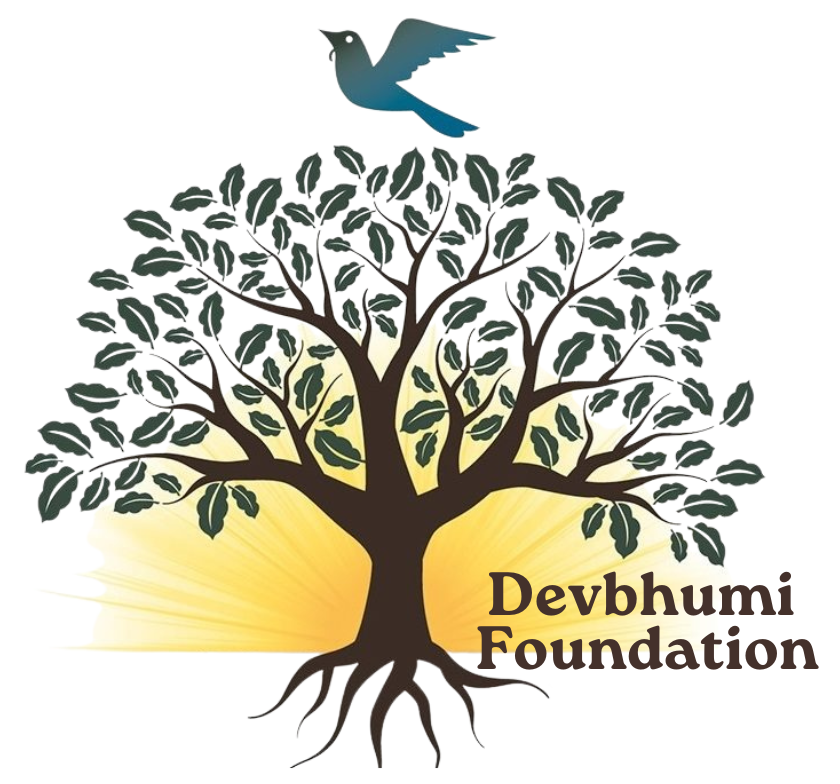Introduction: The Importance of Education for Societal Empowerment Education serves as a fundamental pillar for societal empowerment, acting as a catalyst for socio-economic development and a mechanism to reduce inequality. The transformative power of education lies in its ability to equip individuals with the knowledge and skills necessary to participate fully in economic, social, and political life. As a cornerstone for growth, education fosters a more informed and capable populace, which, in turn, promotes sustainable communities and drives innovation and progress. Despite the evident benefits, the efforts of state and private sectors often fall short in providing comprehensive educational opportunities for all. Various systemic challenges such as limited resources, socio-economic barriers, and infrastructural deficiencies contribute to significant disparities in educational access and quality. These gaps are particularly pronounced in underserved and marginalized communities, where the lack of adequate educational facilities and qualified teachers impedes the potential for individual and collective advancement. In many regions, state-run educational institutions struggle with overcrowding, outdated curricula, and insufficient funding. These limitations hinder the capacity to deliver a holistic education that meets the diverse needs of the student population. Similarly, while private sector contributions can introduce innovation and additional resources, they are frequently inaccessible to lower-income families due to high tuition fees and associated costs, thereby perpetuating educational inequality. It is within this context that education NGOs emerge as critical agents of change. These non-governmental organizations play an essential role in bridging the educational gaps left by state and private sector shortcomings. By implementing targeted …
Introduction: The Importance of Education for Societal Empowerment
Education serves as a fundamental pillar for societal empowerment, acting as a catalyst for socio-economic development and a mechanism to reduce inequality. The transformative power of education lies in its ability to equip individuals with the knowledge and skills necessary to participate fully in economic, social, and political life. As a cornerstone for growth, education fosters a more informed and capable populace, which, in turn, promotes sustainable communities and drives innovation and progress.
Despite the evident benefits, the efforts of state and private sectors often fall short in providing comprehensive educational opportunities for all. Various systemic challenges such as limited resources, socio-economic barriers, and infrastructural deficiencies contribute to significant disparities in educational access and quality. These gaps are particularly pronounced in underserved and marginalized communities, where the lack of adequate educational facilities and qualified teachers impedes the potential for individual and collective advancement.
In many regions, state-run educational institutions struggle with overcrowding, outdated curricula, and insufficient funding. These limitations hinder the capacity to deliver a holistic education that meets the diverse needs of the student population. Similarly, while private sector contributions can introduce innovation and additional resources, they are frequently inaccessible to lower-income families due to high tuition fees and associated costs, thereby perpetuating educational inequality.
It is within this context that education NGOs emerge as critical agents of change. These non-governmental organizations play an essential role in bridging the educational gaps left by state and private sector shortcomings. By implementing targeted programs and initiatives, education NGOs address the unique challenges faced by disadvantaged communities, ensuring that educational opportunities are extended to those who need them most. Their efforts not only enhance individual prospects but also contribute to broader societal empowerment by fostering inclusive and equitable education for all.
The Role of Education NGOs: Bridging the Gap
Education NGOs play a crucial role in addressing the educational gaps that state and private sector initiatives often leave unaddressed. These organizations employ a range of strategies to ensure that underserved communities receive the educational resources and opportunities they need. One of the primary methods employed by education NGOs is community outreach. By engaging directly with communities, NGOs can identify specific educational needs and tailor their programs accordingly. This grassroots connection allows for a more personalized approach, ensuring that the unique challenges of each community are effectively addressed.
Another significant strategy is the implementation of supplemental education programs. These programs often include after-school tutoring, vocational training, and literacy initiatives, designed to complement formal education systems. By providing additional resources and support, education NGOs help to bridge the learning gaps that may exist due to inadequate school infrastructure or limited access to quality education. Moreover, these programs often focus on marginalized groups, including girls, children with disabilities, and economically disadvantaged students, thereby promoting inclusivity and equal opportunities for all.
Advocacy for policy changes is another critical aspect of the work done by education NGOs. By influencing educational policies and practices, these organizations can drive systemic changes that benefit a broader spectrum of the population. Education NGOs often collaborate with government agencies, educational institutions, and other stakeholders to advocate for reforms that promote equitable access to education.
The unique strengths of education NGOs lie in their flexibility and innovative approaches. Unlike larger bureaucratic institutions, NGOs can rapidly adapt to changing circumstances and experiment with new educational models. Their grassroots connections enable them to implement context-specific solutions, while their innovative approaches often lead to the development of creative and effective educational interventions. By leveraging these strengths, education NGOs play an indispensable role in bridging educational gaps and fostering a more inclusive and equitable educational landscape.
Operational Models and Funding Sources of Education NGOs
Education NGOs employ a variety of operational models to address educational disparities effectively. These models often involve a comprehensive approach that includes designing and implementing educational programs tailored to specific community needs. Many NGOs collaborate closely with local communities to ensure their initiatives are culturally relevant and directly address the unique challenges faced by these populations. This partnership approach not only fosters trust but also enhances the sustainability of the programs by empowering community members to take an active role in educational development.
One common operational model is the direct service delivery model, where NGOs provide educational services such as teaching, tutoring, and school supplies directly to students in need. Another model is the capacity-building approach, which focuses on training teachers, developing educational materials, and improving school infrastructures. Some NGOs adopt a hybrid model, combining elements of both direct service delivery and capacity building to create a more holistic impact.
Measuring the impact of these educational programs is a critical component of the operational strategy for education NGOs. This involves setting clear objectives, using various assessment tools, and collecting data to evaluate progress and outcomes. Effective impact measurement not only helps in refining programs but also plays a crucial role in securing funding, as it demonstrates accountability and success to potential donors and partners.
Funding sources for education NGOs are diverse and include donations from individuals, grants from foundations, partnerships with corporations, and government subsidies. Each source presents its own set of challenges and opportunities. Individual donations, while often flexible, require continuous engagement and trust-building with the donor base. Grants from foundations can provide substantial funding but usually come with stringent reporting requirements and specific project goals. Corporate partnerships offer both financial support and additional resources, such as volunteer programs, but necessitate alignment with the corporation’s social responsibility objectives. Government subsidies can be significant but may involve navigating complex regulatory environments and bureaucratic processes.
Managing these funding sources effectively is crucial for the sustainability of education NGOs. It requires a strategic approach that includes diversifying income streams, maintaining transparent financial practices, and building strong relationships with donors and partners. Despite the challenges, the opportunities presented by these varied funding sources enable education NGOs to continue their vital work in bridging educational gaps and fostering a more equitable society.
Case Study: Dev Bhumi and Mission Education
Dev Bhumi is a non-governmental organization (NGO) dedicated to addressing educational disparities in underserved communities. Its flagship program, Mission Education, embodies the organization’s mission to empower disadvantaged children by offering a comprehensive suite of services aimed at holistic development. The primary objectives of Dev Bhumi include providing basic education, vocational training, healthcare, and psychological support to children who lack access to these essential resources.
Mission Education’s activities are diverse and targeted. The program offers basic education to children who are out of school, ensuring they receive foundational knowledge in core subjects. This educational support is complemented by vocational training, which equips older children with practical skills that can enhance their employability. For instance, students have the opportunity to learn trades such as carpentry, tailoring, and computer literacy, thereby opening up new avenues for future employment.
Healthcare is another critical component of Mission Education. Regular health check-ups and immunization drives are conducted to safeguard the well-being of the children. Additionally, the program provides nutritional support to combat malnutrition, which is prevalent in many of the communities served by Dev Bhumi. Psychological support is also a key aspect of the program, recognizing that mental health is crucial for overall development. Trained counselors work with the children to address issues such as trauma and anxiety, helping them build resilience and confidence.
The impact of Mission Education on local communities is both measurable and significant. Enrollment rates in the program have steadily increased, indicating a growing trust in the services provided. Academic performance has improved, with many children successfully transitioning to mainstream schools. Vocational training has led to tangible employment opportunities, and healthcare initiatives have resulted in better health outcomes for the children. Through these multifaceted efforts, Mission Education is making a profound difference in the lives of underserved children, offering them a brighter and more secure future.
Sign up for free class
It’s easy and free!



